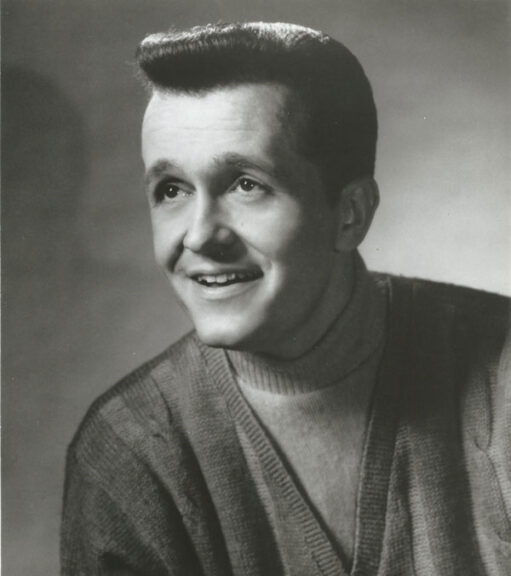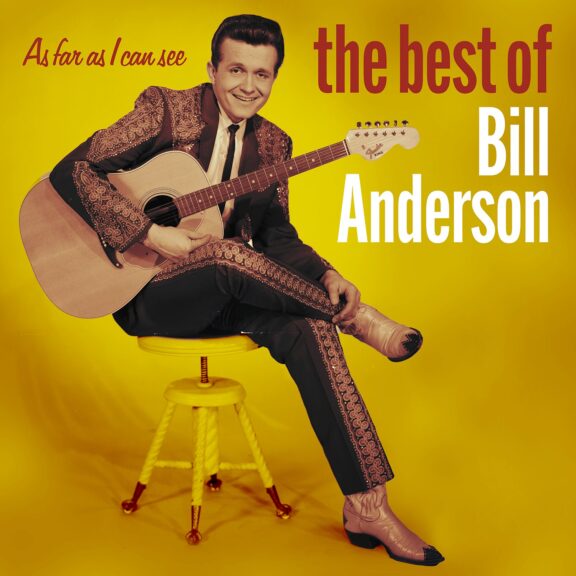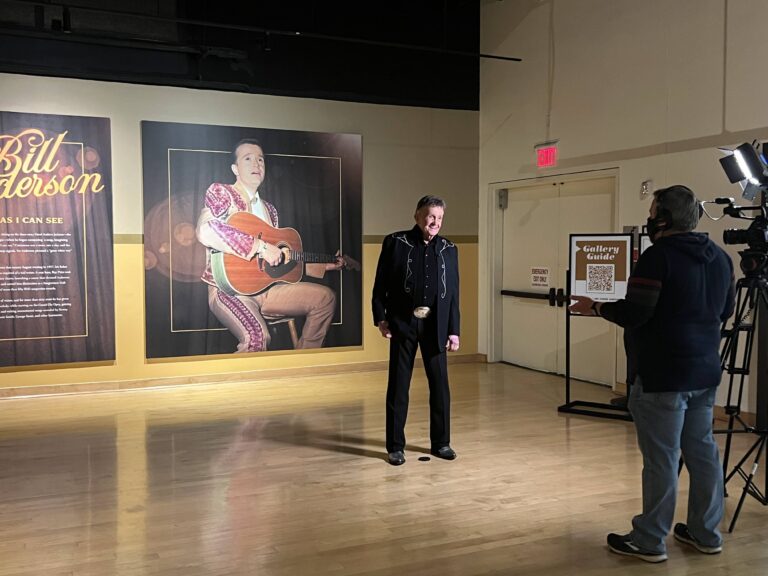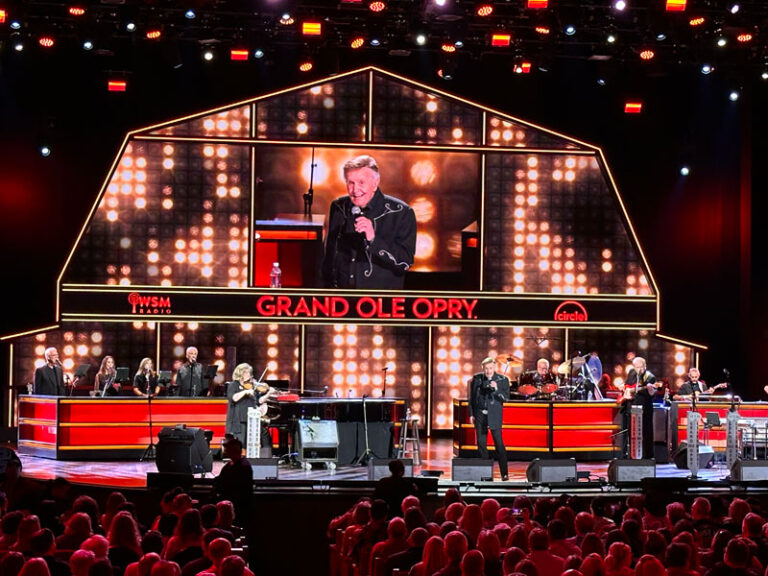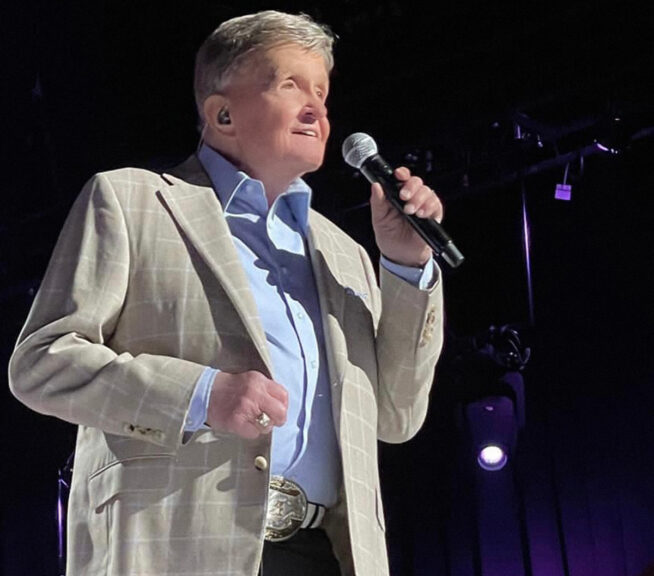Grand Ole Opry icon Bill Anderson’s career spans seven decades. As one of the most awarded songwriters in country music history, he’s also a million-selling recording artist, a beloved onstage performer, a television game show host, a network soap opera star, and an author. In his youth, Anderson considered a baseball career and worked as a journalist and a deejay. His moniker, Whisperin’ Bill, speaks loudly of his accomplishments and his desire to be a lifelong learner.
Tell us about turning down the opportunity to play for the Chicago Cubs.
Well, you’re greatly exaggerating what really happened. I was a left-handed pitcher in high school. I loved baseball. It was always a passion of mine, very much like… like country music turned out to be. I had the chance — when I graduated from high school — there were some “bird dog” scouts that used to come to the little high schools down in the area in Georgia where I grew up. They would watch us play and I had one of the bird dog scouts come up to me after my senior year and he said, “You know, if you’re interested in pursuing baseball — if you’d really like to consider playing professional baseball — I can get you a tryout with the Chicago Cubs. You’d have to go to Mesa, Arizona, this fall.” And he said, “I think you’ve got all the potential.” He said, “We just need to work on some things with you, the coaches and all.” He said, “I think you might could do it.”
Anderson continues to share about his roots as well as how difficult choices and career decisions — at an early age — led him to Music City. The prolific songwriter talks about the success he experienced years ago when Ray Price (1957) recorded the song “City Lights” to more recently when Brad Paisley and Alison Krauss recorded “Whiskey Lullaby” (2005). In addition, He recounts how he developed a friendship and collaborative relationship with Vince Gill thanks to a local hairdresser. He talks about his career, why membership in the Grand Ole Opry and the Country Music Hall of Fame represent pinnacles of his career, and how meaningful it is to him to have diverse artists including Aretha Franklin, James Brown, Dean Martin, Bing Crosby, and Ray Price record his songs.
What was it like to cross those musical boundaries and gain visibility for your talents outside of the country music industry?
It’s a great compliment when somebody takes one of your songs and records it. Especially when they record it in their own style and put their own stamp on it, and not necessarily try to trace the picture that you painted, but they paint their own picture. It’s a great compliment.
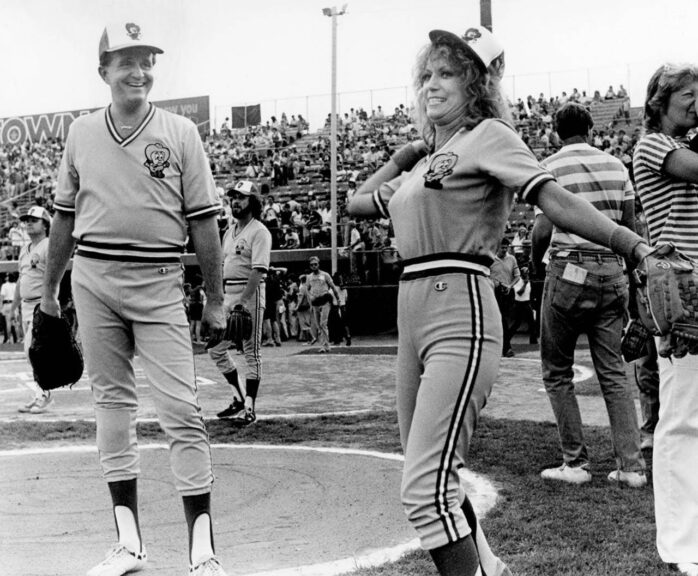
You’ve evolved greatly in your lifetime, and you try different things really to expand your roots. Why is that important?
Well, because nothing stays the same. You know, the first automobile that I ever drove was my grandfather’s 1937 Oldsmobile. It had had a stick shift in the floor, had running boards on the side and big old white ball tires and things. And I mean, that got me from point A to point B. A car today still gets you from point A to point B, but forget the running boards and you don’t have to press the clutch and shift gears and things like you used to do. So, everything changes, everything evolves. And if you don’t change and evolve, then you get left behind, you get left in the dust. And I’ve never wanted to be left in the dust. I wanted to be a part of whatever was going on. And so, I’ve tried to, as I said earlier, talking about going from writing songs by myself to co-writing and things. These are things I felt like I had to do in order to stay current and to stay involved.
You recently said at the [Country Music] Hall of Fame medallion ceremony the accolade and presentation gave you goosebumps. Will you expand on why that was such an important moment for you?
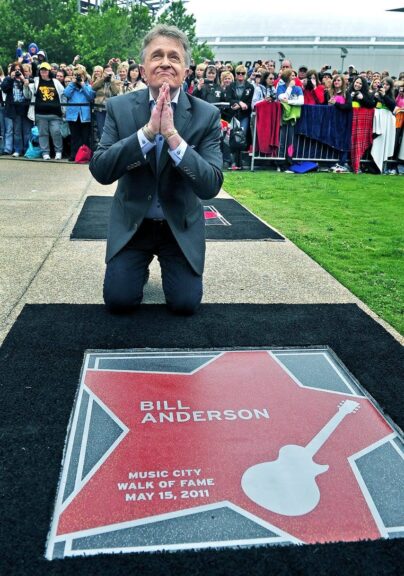
Well, it’s an important moment for anybody who gets inducted into the Hall of Fame because, I mean, the Country Music Hall of Fame [and] membership in the Hall of Fame is … that’s the top rung on the ladder. That’s Yankee Stadium to a baseball player, Hollywood to a movie actor or TV performer or something. There’s just no higher rung on the ladder than the Country Music Hall of Fame. When they elected me to the Hall of Fame in 2001, it was the culmination of all the dreams and all the aspirations, all the hopes, all the plans, all the hard work. It’s just somebody saying, “Well, ya done good.” And we want future generations to know who you were and to know what you did.
What do you do to squeeze the day? d. [I] try to wake up in a good mood every morning. When I wake up … I say thank you Lord for another day. I make me a cup of coffee and get me a little bite to eat and sit down and have a little quiet time. I’m not a religious fanatic by any stretch of the imagination but I have a very deep and abiding faith. I like to read some spiritual things early in the morning that kind of help put me on the right path. And by the time I get up, I have a chair in my family room. I call it my God chair. I sit there and have quiet time every morning before I get up and try to squeeze the day. When I get up out of that chair and start squeezing, I try to do it in a very positive frame of mind and with a very positive and grateful attitude.
In this podcast, Bill Anderson shares sound advice he received from his father early in his career; reminisces about helping a talented young artist named Connie Smith; and explains why he is intent on staying active and relevant. In addition, he talks about his newest release “The Country I Grew Up With” which he recorded with four additional Country Music Hall of Famers — Willie Nelson, Vince Gill, Bobby Bare, and Jimmy Fortune [of the Statler Brothers). Join us to see a side of Whisperin’ Bill that amplifies his life and underscores the importance of following your dreams.

This Squeeze the Day is brought to you by the All of Us Research Program from the National Institutes of Health. Learn how you can help change the future of health by participating in the program.
Visit joinallofus.org to learn more.

